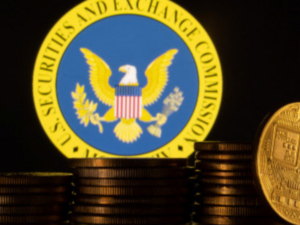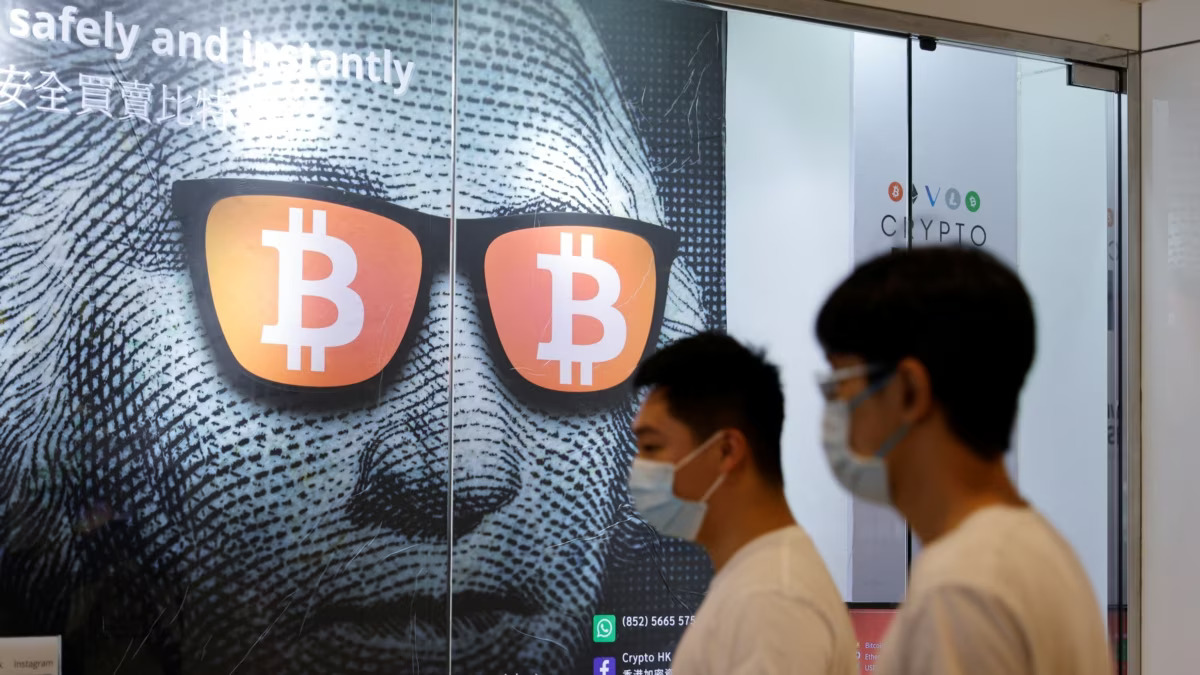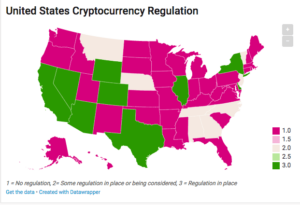In the United States, the world of crypto exchanges is like a puzzle with many pieces.
It’s not just a simple case of the government saying no; this story has many layers.
The government aims to protect our money and ensure nothing illegal happens.
The US is known for its strict financial regulations, and these rules play a big part in the relationship between the government and crypto exchanges.
In this article, I will take you through the reasons behind banning many crypto exchanges in the US.
So, let’s get right to what I found out after my research!
Understanding the US Regulatory Framework for Cryptocurrencies
Several key agencies set these rules in the United States, each playing a specific role.
- Securities and Exchange Commission (SEC)
First up, there’s the Securities and Exchange Commission (SEC).
They’re like the referees who ensure that any cryptocurrency acting like stocks or bonds plays by the rules.
Their main focus is protecting investors and maintaining fair, orderly, efficient markets. And to do so, there are crypto exchanges registered with SEC.
- Commodity Futures Trading Commission (CFTC)
Then, we have the Commodity Futures Trading Commission (CFTC).
They oversee cryptocurrencies when treated like commodities, such as gold or oil.
Think of them as another set of referees but for a different game.
- Internal Revenue Service (IRS)
The Internal Revenue Service (IRS) is also in the mix.
They’re concerned with taxes – ensuring everyone reports and pays what they owe from their crypto dealings. However, there are ways to legally avoid paying crypto taxes.
But the IRS still act as an accountant keeping an eye on transactions. And for an extra read, know if the IRS can track your crypto.
- Financial Crimes Enforcement Network (FinCEN)
Lastly, there’s the Financial Crimes Enforcement Network (FinCEN).
They’re focused on preventing money laundering and other financial crimes.
They ensure that crypto exchanges have the right measures to stop illegal money from moving through their systems.
Each agency has its own set of rules that crypto exchanges must follow to operate in the US.
Sometimes, these rules can be tough, and not all exchanges are up for the challenge.
This is why some exchanges are banned – they can’t or don’t want to play by these rules.
Next, let’s examine how security concerns and investor protection add another layer to this situation.
New to crypto investments? Know Is cryptocurrency legal in USA?
Security Concerns and Investor Protection
When it comes to crypto exchanges in the US, security is a top priority, kind of like wearing a helmet when you ride a bike.
When you look into the issue in-depth, the following are the reasons that come up when we discuss security and investor protection.
The US government is focused on ensuring people’s cryptocurrency investments are safe.
They want to prevent someone from losing money due to scams, crypto exchange hacks, or other security issues.
Think about it like this: when you put your money in a bank, you trust it’s safe and secure.
The government wants to ensure the same level of security for your investments in crypto exchanges.
They look closely at how these platforms protect users’ data and funds.
If an exchange can’t prove its safety, it might not be allowed to operate in the US.
Investor protection is another big reason for strict regulations.
The government wants to ensure people understand what they’re getting into with cryptocurrencies.
It’s like ensuring everyone knows the game’s rules before playing.
This includes clear information about the risks involved and fair treatment by the exchanges.
Because cryptocurrencies are still pretty new and can be complicated, the US takes extra care to protect investors, especially those who might not be very experienced.
The government aims to create a safe and trustworthy environment for everyone interested in cryptocurrencies by ensuring that crypto exchanges follow strict security and investor protection guidelines.
Next, we’ll explore how anti-money laundering laws are crucial in regulating these exchanges.
Recommended Read: Why the government is taxing crypto?
Compliance with Anti-Money Laundering (AML) Laws
Following Anti-Money Laundering (AML) laws in cryptocurrencies is super important, especially in the US.
AML laws stop people from using digital money for illegal stuff, like hiding stolen money or funding bad activities.
Crypto exchanges in the US have to show they’re really serious about following these AML laws.
They need systems that spot any shady money that tries to sneak in or out.
If an exchange doesn’t have good systems to catch these bad transactions, it could get in big trouble.
One of the main challenges for crypto exchanges is keeping up with these AML rules.
They have to check who their customers are and monitor all the transactions happening on their platform.
It’s a bit like a lifeguard at a pool, always watching to ensure everyone is safe.
But these rules can be tough to follow.
They require much work and money to set up the right systems.
Not all crypto exchanges can handle this, especially the smaller ones or those just starting.
That’s why some exchanges decide not to operate in the US or end up being banned because they can’t meet these strict AML requirements.
Keep reading as we examine how cryptocurrencies’ decentralized and anonymous nature can sometimes clash with these regulatory objectives.
Navigating Decentralization and Anonymity
One of the coolest things about cryptocurrencies is that they’re decentralized.
This means no single person or group is in charge.
It’s like a game where everyone gets to play, but no one is the boss.
This decentralization is a big draw for many people, but it can also create some challenges, especially regarding rules and regulations in the US.
Then there’s the issue of anonymity.
Many cryptocurrencies let you make transactions without revealing your identity.
While this can be great for privacy, it also makes it tricky for regulators.
They want to ensure this anonymity isn’t used for illegal activities, like money laundering or funding illegal activities.
The US government is working to find a balance.
They want to keep the good parts of decentralization and anonymity, like privacy and freedom, but they must also ensure these features aren’t misused.
For crypto exchanges, navigating this balance is tough.
They must show that they can respect users’ privacy while following the government’s rules.
Not all exchanges can do this, so they are banned in the US.
It’s all about playing by the rules while keeping the unique spirit of cryptocurrencies alive.
Next, I will tell you how geopolitical factors and trade sanctions add another layer to this complex situation.
Recommended Read: What are crypto exchange aggregators?
Geopolitical Factors and Trade Sanctions
Geopolitical factors and trade sanctions are like big players in a game of chess that affect how crypto exchanges operate in the US.
Geopolitics is all about the political relationships between countries.
Sometimes, when countries don’t get along, they might put trade sanctions on each other.
These are rules saying you can’t do business with certain countries.
For crypto exchanges, they might be banned from operating in the US if they do business with countries that the US has trade sanctions against.
This list prominently includes Iran, North Korea, and Russia, amongst other countries.
This can be tough for exchanges, especially if they have users from all over the world.
These geopolitical issues can be tricky to navigate.
Exchanges have to be careful about who they do business with.
If they slip up, they might get banned in the US.
It’s a balancing act, like walking on a tightrope, trying to stay in line with these complex international rules.
In short, geopolitics and trade sanctions are important reasons some crypto exchanges are banned in the US.
They show how international politics can play a big role in cryptocurrencies.
Coming up next, let’s wrap up our discussion and look at the future of crypto exchanges in the US.
Recommended Read: Why crypto should not be regulated?
Conclusion: The Future of Crypto Exchanges in the US
As we explore why so many crypto exchanges are banned in the US, it’s like finishing a challenging hike – we’ve covered a lot of ground.
In this article, written after thorough research, you can see how safety rules, the need for transparency, and even global politics play a part in shaping the crypto landscape in the US.
Looking ahead, the future of crypto exchanges in the US seems like a road still being built.
The government is working on finding the right balance.
They want to keep the exciting, innovative world of cryptocurrencies buzzing but must ensure everything is safe and fair for everyone.
For crypto exchanges, this might mean more rules to follow, but it also means more chances to grow and be part of the US market.
Cryptocurrencies are always changing; the US is a big part of that story.
By staying informed and adaptable, crypto exchanges can remain an important part of this ever-evolving digital world.
So, let’s keep an eye on this space – the next chapter in the story of crypto exchanges in the US will surely be interesting!




